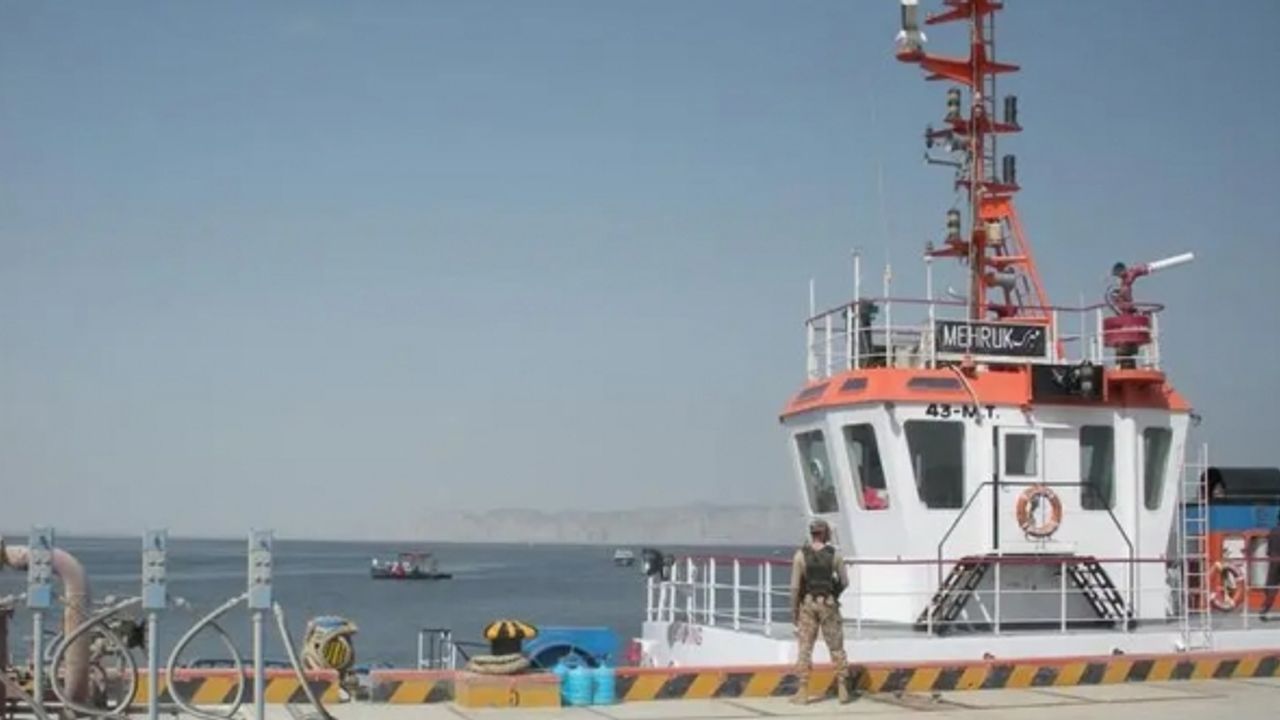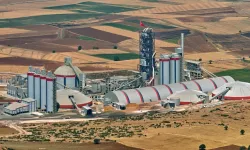Although the very small port of Gwadar was neglected in the 20th century, the development of this port has been on the agenda since the 1990s. The insufficient capacity of Karachi and Qasim ports made Islamabad think of establishing a new port in the deep waters of the Gulf of Oman.
In this regard, China and Pakistan started the China-Pakistan Economic Corridor (CPEC) project by signing a memorandum of understanding in 2013. This project is supposed to be completed by 2030 through infrastructure construction such as railways, highways, oil and gas pipelines, the creation of economic zones, the development of Gwadar port infrastructure, etc. It also connects the western part of China to the southern part of Pakistan, especially Gwadar.
One of the main goals of the corridor is to develop Gwadar port as a transportation port and a regional economic hub. Therefore, taking steps to realize the midterm plan actually turns on the engine of Pakistan's economic growth. Investment of more than 60 billion dollars by China in (CPEC) and approaches such as the construction of the Gwadar International Airport, breakwater construction, dredging, construction of additional terminals, development of the free zone, adding basic infrastructure facilities, fresh water treatment, the supply and distribution of water, etc., in Gwadar port is actually stimulating the positive economic growth of Pakistan.
In fact, Gwadar port is supposed to become a smart, developed port city with 11 functional areas and by accepting a population of 2 million by 2050, it will increase Pakistan's gross product and become the economic hub of South Asia.
Although some projects have been suspended in recent years, the implementation of projects such as the connection of Gwadar port and the national highways of Pakistan, the follow-up of medium-term projects until 2025, and long-term projects until 2030 are in line with transforming Gwadar into a regional and international logistics center.
In Pakistan's foreign policy, in order to pursue national goals, special emphasis has been placed on economic diplomacy. Pakistan's leaders link the country's economic future to the success of the China-Pakistan Economic Corridor (CPEC) and Gwadar as its "hub".
From the point of view of the current government of Shahbaz Sharif, the development of Baluchistan and the industries created in Gwadar will increase the volume of exports, economic growth, and foreign direct investment. In addition, Pakistan Muslim League-Nawaz and Pakistan People's Party want to strengthen relations with China.
From the Islamabad’s point of view, progressing of all projects in Gwadar promote the cooperation with China, a step in the direction of encircling India, controlling India's energy security and expanding Beijing's influence in the Indian Ocean.
On the other hand, Pakistan wants Gwadar port to appear as a changer in the region and connection to Afghanistan and Central Asia. Therefore, the expansion of economic, political, and geopolitical agreements with Afghanistan, Tajikistan, Uzbekistan, Turkmenistan, and then Kyrgyzstan and Kazakhstan is the priority of Pakistan's plans.
Islamabad is trying to manage Afghanistan's transit through Gwadar. In fact, projects such as the multi-purpose terminal in Gwadar, the plan of the route from Karachi to Peshawar, the follow-up of transnational road and railway projects with Uzbekistan and Afghanistan, etc., will make Central Asian trade with Gwadar port much easier in terms of distance and freight costs.
This is while, despite the crisis in Russia and Ukraine, the need of Central Asia to improve ties with the world outside the southern routes and Pakistan has increased.
In addition, Islamabad wants to develop Western China's trade with South Asia, the Middle East, Africa, and the Pacific region, with Gwadar as the center. From this point of view, Gwadar has extensive advantages for China, and by reducing the transportation time, the goods will reach the coast of Africa and the Middle East in a much shorter time.
Apart from this, Pakistan has also tried to give more importance to the Gwadar port through proposals and projects such as joining Turkey in the agreement between China and Pakistan, supporting the presence of Saudi Arabia in Gwadar, implementing the project of Gwadar and Nawab Shah pipelines, and transporting gas from Iran and the Middle East.
Obstacles:
The geopolitical, political, and military consequences of the expansion of China's presence in Gwadar are important. The development of Gwadar port increases the capabilities of the Pakistan Army in combination with the Chinese Navy in the Indian Ocean and affects India's ability to act in the region. Also, China's access to the western half of Gwadar port reduces the dependence on the southern routes and the Straits of Malacca.
The Indo-Pacific region is the scene of strategic competition between the United States and China, the United States is trying to contain China and counter its Belt and Road Initiative.
Also, China, with its 40-year lease and expanding role in Gwadar, has raised US concerns about its ambitions in the Middle East. In addition, the main concern is that this port will become a strategic Chinese military base. While the Biden administration is focusing on cooperation with maritime security-defense cooperation with India, the current state of US-Pakistan relations has many ambiguities.
Therefore, the geopolitical competition in South Asia and the strategy of the United States against China may negatively affect the Gwadar. Or, any Pakistan’s choice between the US and China to increase the country's spending in Gwadar.
On the other hand, the basic problems of lack of water, electricity, and gas are among the major problems of Gwadar development. The unavailability of essential services will cause a delay in achieving the real potential of Gwadar as a smart port city.
Also, the higher-than-expected increase in Pakistan's external debt may slow Beijing's investment rate and make growth risky. In addition, Pakistan's economic conditions and foreign exchange reserves are not suitable, and there are concerns that Islamabad may fall into debt. This has a negative impact on the continuation of investment in Gwadar.
The development program in Gwadar is facing a huge challenge from the rebels in Balochistan. The opposition to Chinese investment, the rapid increase of the non-Baloch population in the region and the imbalance between Chinese workers (sometimes up to 400,000 people) have also made the Chinese population a target.
Therefore, there is a possibility of incidents such as the presence of jihadists and extremists and the killing of Chinese nationals and Pakistani workers. The sectarian rebellion and increasing security costs in Balochistan can stop the commercial activity and increase the cost of providing security and facilities in Gwadar.
Apart from this, establishing security in Pakistan's Balochistan is also dependent on peace in Afghanistan. The occurrence of more conflict and even a civil war in Afghanistan can make Pakistan's goals of a positive relationship with Central Asia through Afghanistan ineffective.
In addition, the potential of Gwadar to become a major commercial center of this port is promising. But it has failed to bring good business. The incentives are not enough, and the infrastructure is insufficient.
Gwadar is still not a broad commercial and economic-geopolitical priority for all regional and international actors, and there are even negative views on it from rival countries. Or the wider and stronger relations of Central Asian countries with regional and international powers such as India, Iran, Europe, and America can have a negative effect on Pakistan's transit goals in Gwadar. In addition, if New Delhi concentrates more, Iran's Chabahar can play an important role in reducing Gwadar's transit position. Others believe that the polar democracy of Pakistan and the actors in this country could hinder the expansion of the role of this port.
Opportunities:
It seems that the priority of Shahbaz Sharif's foreign policy is to maintain strategic relations with China. If the infrastructure, highway, and internal railways are well connected, and rail connectivity with China and Central Asia is fully available, Gwadar would play a key and important role.
Gwadar's success also depends on managing Pakistan's political stability. Despite Pakistan's lack of necessary capital, the geographical proximity of Gwadar port to the Middle East, and the rapid change in global and regional conditions can attract other investors in the international arena.
Pakistan can practically increase Gwadar's transit position by finalizing the agreements and building routes with Central Asian countries, and getting more support from foreign actors for the projects.
However, due to a combination of causes, Gwadar's full transit and commercial potential will not be fully usable in the future years. But Gwadar can still play an important role in making Pakistan one of the major regional economies in the long run.












